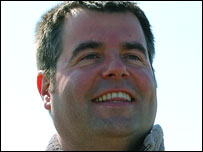 Steve Wright researched the Island’s political changes for his degree in History in 2017. For his presentation on Saturday 5th April he started with the great change in 1765, when the British Crown bought the regalities of the Lords of Man. With the British monarch as Lord of Man, a governor was appointed as the crown’s representative.
Steve Wright researched the Island’s political changes for his degree in History in 2017. For his presentation on Saturday 5th April he started with the great change in 1765, when the British Crown bought the regalities of the Lords of Man. With the British monarch as Lord of Man, a governor was appointed as the crown’s representative.
The major change for the House of Keys came in 1866 with an Act to require members to be elected. Despite newspaper campaigns by James Brown and Robert Fargher, agreement was the result, not of public outcry, but primarily of the insistence of the UK Treasury that it would not allow the Keys to control expenditure from the Island’s revenues unless they were a representative assembly.
Steve then took us through the various changes to the Legislative Council from 1791 to the modern day: from the Lieutenant-Governor as virtual dictator, surrounded by Crown appointees and his own chosen officers to the modern, ceremonial role of the Lieutenant-Governor, with the Legislative Council chaired by the President of Tynwald, and eight members elected to it by the House of Keys, leaving only the Lord Bishop and a (now voteless) Attorney-General as ex officio members.
Steve’s own research had led him to work backwards from Tynwald members’ debates on the 2016 proposals for reform by Lord Lisvane, taking him to Hansard reports on debates about other suggested reforms, with the MacDermott Commission of 1959 and the MacDonnell Report of 1911. He said that, having read the debates about Robert Lisvane’s recent proposals, he found that almost identical objections had been made to earlier proposed reforms.
The sustained applause for Steve Wright showed just how much everybody enjoyed his presentation and appreciated the extensive research that had gone into it.
